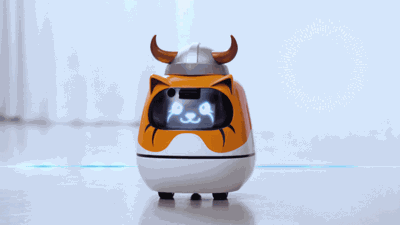Rice Robotics, a Hong Kong-based robotics startup, has announced the launch of an AI-powered companion robot, the Minibot M1, developed in partnership with Floki. The robot will operate on the decentralized RICE AI protocol and integrate features designed to support everyday tasks and foster emotional interaction with users.
Rice Robotics Unveils Minibot M1, the Only Friend That Pays You in Crypto to Hang Out
The Minibot M1, branded in collaboration with Floki, will function as a personal assistant capable of managing household schedules, retrieving online information, and offering companionship through interactive features like music, storytelling, and conversational engagement. Users interacting with the robot will earn $RICE tokens in return, forming part of a data collection and training ecosystem for robotic intelligence.
The launch of the robot will be accompanied by the introduction of the $RICE token, which will serve as the utility token of the RICE AI protocol. The token will debut on TokenFi Launchpad, with staking opportunities available for holders of $TOKEN, the native token of TokenFi. Airdrops of $RICE will also be issued to holders and stakers of both $FLOKI and $TOKEN.
Strategic Partnerships, Funding, and Market Outlook
Rice Robotics has partnerships with several major corporations, including SoftBank, Nvidia, Dubai Future Foundation, NTT Japan, and Mitsui Fudosan. Its robots are currently deployed in commercial delivery settings across Japan, including unmanned indoor delivery for 7-Eleven Japan and office services at SoftBank headquarters.
Floki’s involvement marks another step in its broader strategy to expand into tokenized AI and blockchain-enabled services. Through its sister project TokenFi, Floki aims to facilitate the tokenization of real-world assets and data, including AI-generated content and robotic learning models.
Earlier this year, Rice Robotics secured over $7 million in a pre-Series A funding round led by Alibaba Entrepreneurs Fund, Soul Capital, and Audacy Ventures. The company is working toward a decentralized data-sharing model where robots can autonomously exchange training data to improve performance without centralized oversight.
The AI robotics sector is currently valued at approximately $22 billion and is projected to exceed $100 billion by 2030, according to industry estimates.
Ethics, Emotion, and the Future of Companion Robots
The rapid integration of artificial intelligence into robotics marks a transformative era for human-machine interaction. As robots shift from industrial roles to emotionally responsive companions and personal assistants, society is entering uncharted territory where machines may influence not just our productivity, but our social and emotional landscapes as well.
This convergence of AI, automation, and consumer tech raises crucial questions about ethics, privacy, and the evolving definition of companionship in a digital age. The next few years will be pivotal in shaping how we coexist with increasingly autonomous and intelligent machines — not just in our workplaces, but in our homes and daily lives.



